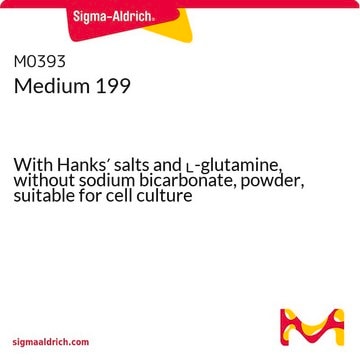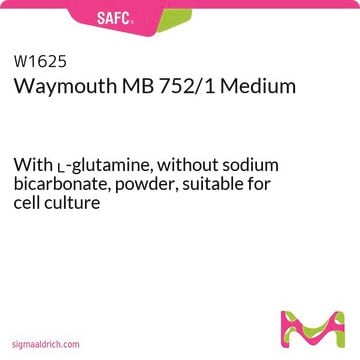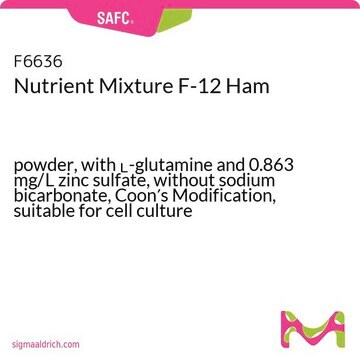N6635
Nutrient Mixture F-10 Ham
With L-glutamine, without sodium bicarbonate, powder, suitable for cell culture
Synonym(s):
Ham’s F-10
About This Item
Recommended Products
form
powder
technique(s)
cell culture | mammalian: suitable
components
HEPES: no
NaHCO3: no
sodium pyruvate: 0.11 g/L
L-glutamine: yes
phenol red: yes
shipped in
ambient
storage temp.
2-8°C
Looking for similar products? Visit Product Comparison Guide
General description
Application
- for the in vitro tissue culture from rabbit
- to culture satellite cells from fish white muscle of trout
- for culturing neonatal porcine islets (NPIs)
Quantity
Reconstitution
also commonly purchased with this product
Signal Word
Warning
Hazard Statements
Precautionary Statements
Hazard Classifications
Skin Sens. 1
Storage Class Code
11 - Combustible Solids
WGK
WGK 2
Flash Point(F)
Not applicable
Flash Point(C)
Not applicable
Certificates of Analysis (COA)
Search for Certificates of Analysis (COA) by entering the products Lot/Batch Number. Lot and Batch Numbers can be found on a product’s label following the words ‘Lot’ or ‘Batch’.
Already Own This Product?
Find documentation for the products that you have recently purchased in the Document Library.
Customers Also Viewed
Articles
Nutrient Mixture F-10 Ham Formulation
Nutrient Mixture F-10 Ham Formulation
Nutrient Mixture F-10 Ham Formulation
Nutrient Mixture F-10 Ham Formulation
Protocols
Powdered media and salt mixtures are extremely hygroscopic and should be protected from atmospheric moisture.
Our team of scientists has experience in all areas of research including Life Science, Material Science, Chemical Synthesis, Chromatography, Analytical and many others.
Contact Technical Service






